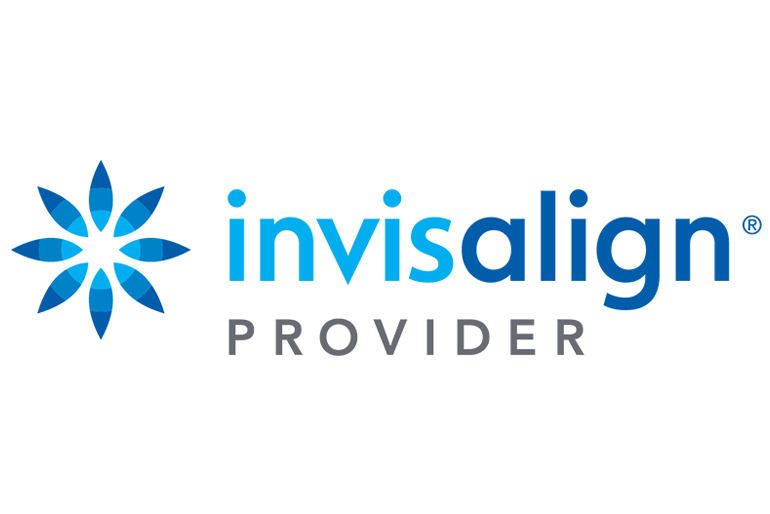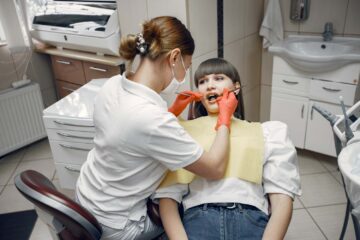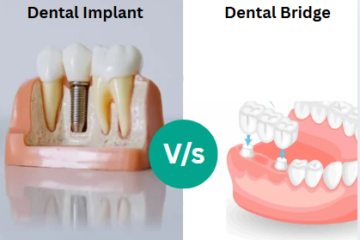
Picture this: you wake up each morning, brush your teeth, and reach for that bottle of mouthwash on your bathroom counter. But then a nagging question crosses your mind – is it really safe to use mouthwash every single day? You’re not alone in wondering about this. Millions of people worldwide incorporate mouthwash into their daily routine, yet many remain unsure about its long-term effects and proper usage.
The short answer is yes, most people can safely use mouthwash daily when used correctly. However, the complete answer is more nuanced and depends on several factors including the type of mouthwash, your oral health status, and your specific needs. Let’s dive deep into everything you need to know about daily mouthwash use.
Understanding Mouthwash: More Than Just Fresh Breath
Mouthwash, also known as oral rinse, is a liquid product designed to be swished around your mouth and then spit out. While many people think of it as simply a breath freshener, modern mouthwashes serve multiple purposes in maintaining oral health.
Primary Functions of Mouthwash
- Antimicrobial Action: Kills harmful bacteria that cause bad breath, cavities, and gum disease
- Fluoride Delivery: Strengthens tooth enamel and prevents cavities
- Plaque Reduction: Helps loosen and remove plaque from hard-to-reach areas
- Gingivitis Prevention: Reduces gum inflammation and bleeding
- Fresh Breath: Neutralizes odor-causing compounds
- Therapeutic Benefits: Some formulations target specific oral health issues
Types of Mouthwash and Their Daily Use Suitability
Not all mouthwashes are created equal. Understanding the different types helps determine which ones are appropriate for daily use.
| Mouthwash Type | Main Ingredients | Daily Use Safety | Best For |
|---|---|---|---|
| Cosmetic | Flavoring agents, mild antiseptics | Generally Safe | Fresh breath, temporary plaque control |
| Therapeutic | Fluoride, antimicrobials | Safe with proper use | Cavity prevention, gum health |
| Alcohol-based | Ethyl alcohol (18-26%) | Use with caution | Deep cleaning, severe bad breath |
| Alcohol-free | Water-based antimicrobials | Excellent for daily use | Sensitive mouths, dry mouth sufferers |
| Prescription | Chlorhexidine, high fluoride | Follow dentist instructions | Specific medical conditions |
Cosmetic vs. Therapeutic Mouthwashes
Cosmetic Mouthwashes These are primarily designed for temporary breath freshening and basic plaque control. They contain mild ingredients like:
- Essential oils (menthol, eucalyptol)
- Flavoring agents
- Mild antiseptics
- Detergents for foam action
Therapeutic Mouthwashes These contain active ingredients approved by dental associations for specific health benefits:
- Fluoride for cavity prevention
- Antimicrobial agents for bacteria control
- Anti-inflammatory compounds for gum health
- Desensitizing agents for tooth sensitivity
The Science Behind Daily Mouthwash Use
Research consistently shows that incorporating mouthwash into your daily routine can significantly improve oral health outcomes. Here’s what the science tells us:
Benefits Supported by Research
Plaque and Gingivitis Reduction Studies demonstrate that daily use of antimicrobial mouthwashes can:
- Reduce plaque formation by up to 26%
- Decrease gingivitis symptoms by 21%
- Lower bleeding on probing scores
- Improve overall gum health markers
Cavity Prevention Fluoride-containing mouthwashes used daily can:
- Reduce cavity formation by 20-40%
- Strengthen enamel in areas brushing might miss
- Provide continuous fluoride exposure
- Benefit high-risk individuals significantly
Bad Breath Control Regular mouthwash use effectively:
- Neutralizes volatile sulfur compounds
- Reduces anaerobic bacteria populations
- Provides longer-lasting fresh breath
- Improves social confidence
Safety Considerations for Daily Use
While daily mouthwash use is generally safe, certain precautions ensure optimal benefits without adverse effects.
Potential Risks and How to Avoid Them
| Risk Factor | Potential Issue | Prevention Strategy |
|---|---|---|
| Alcohol Content | Dry mouth, tissue irritation | Choose alcohol-free formulations |
| Overuse | Taste bud changes, staining | Follow recommended dosage |
| Swallowing | Fluoride ingestion, stomach upset | Always spit out, supervise children |
| Wrong Type | Ineffective treatment | Consult dentist for recommendations |
| Masking Problems | Delayed diagnosis of issues | Regular dental checkups |
Special Populations and Daily Use
Children Under 6
- Should not use mouthwash due to swallowing risk
- Focus on proper brushing and flossing techniques
- Supervised use only after age 6
- Choose fluoride-free options initially
Pregnant Women
- Generally safe with alcohol-free formulations
- Avoid products with high fluoride concentrations
- Consult healthcare provider if uncertain
- Focus on preventing pregnancy gingivitis
Seniors
- May benefit most from daily use
- Choose formulations for dry mouth if needed
- Consider therapeutic options for gum disease
- Regular monitoring by dental professionals
How to Use Mouthwash Correctly for Maximum Benefits
Proper technique ensures you get the most benefit from daily mouthwash use while minimizing risks.
Step-by-Step Daily Routine
Timing Matters The timing of mouthwash use can significantly impact its effectiveness:
- After Meals: Wait 30-60 minutes to avoid interfering with natural saliva
- Before Bed: Allows longer contact time with teeth and gums
- Between Brushing: Use as a mid-day refresher when needed
- Post-Brushing: Some prefer this, though timing varies by product type
Proper Technique
- Measure Correctly: Use the amount specified on the label (usually 20ml)
- Swish Thoroughly: Rinse for 30-60 seconds minimum
- Reach All Areas: Focus on gum line, between teeth, and tongue
- Don’t Dilute: Avoid drinking water before or immediately after
- Spit Completely: Never swallow mouthwash
- Wait to Eat: Avoid food/drink for 30 minutes if using fluoride rinse
Common Mistakes to Avoid
- Using Too Much: More isn’t better – stick to recommended amounts
- Rinsing Too Briefly: Insufficient contact time reduces effectiveness
- Immediate Eating/Drinking: Washes away beneficial ingredients
- Replacing Brushing: Mouthwash supplements, never replaces, proper oral hygiene
- Ignoring Expiration Dates: Expired products may be less effective
Choosing the Right Mouthwash for Daily Use
Selecting the appropriate mouthwash for daily use depends on your specific oral health needs and preferences.
Decision-Making Factors
| Consider This | Why It Matters | Recommendation |
|---|---|---|
| Oral Health Status | Different conditions need different treatments | Consult your dentist in Nagpur for personalized advice |
| Sensitivity Level | Some ingredients may cause irritation | Start with gentle, alcohol-free formulations |
| Age Group | Children and adults have different needs | Age-appropriate formulations only |
| Medical Conditions | Some conditions contraindicate certain ingredients | Medical clearance for complex cases |
| Personal Preferences | Taste and texture affect compliance | Try different options to find your preference |
Recommended Ingredients for Daily Use
For General Health Maintenance
- Fluoride (225-250 ppm for daily use)
- Essential oils (thymol, eucalyptol, menthol, methyl salicylate)
- Cetylpyridinium chloride
- Mild antimicrobials
For Specific Conditions
- Gum Disease: Antimicrobial agents like chlorhexidine (short-term use)
- Dry Mouth: Alcohol-free with moisturizing agents
- Sensitivity: Potassium nitrate or stannous fluoride
- Heavy Plaque: Stronger antimicrobial formulations
Integration with Your Complete Oral Care Routine
Daily mouthwash use should complement, not replace, fundamental oral hygiene practices.
The Complete Daily Oral Care Timeline
Morning Routine (5-7 minutes)
- Brush teeth (2 minutes with fluoride toothpaste)
- Floss or use interdental cleaners (2-3 minutes)
- Mouthwash (1 minute of swishing)
- Optional tongue scraping
Evening Routine (5-7 minutes)
- Floss first to loosen debris
- Brush thoroughly with fluoride toothpaste
- Mouthwash for overnight protection
- Wait before eating or drinking
Throughout the Day
- Post-meal rinsing with water
- Mid-day mouthwash use if needed
- Sugar-free gum after meals
- Adequate water consumption
Professional Care Integration
Regular professional care remains essential even with excellent home care:
Routine Checkups
- Every 6 months for most people
- More frequent for high-risk individuals
- Professional assessment of home care effectiveness
- Early detection of potential problems
Professional Recommendations A qualified dentist in Nagpur can provide personalized guidance on:
- Appropriate mouthwash selection for your needs
- Proper usage techniques and timing
- Integration with other treatments
- Monitoring for any adverse effects
Signs That Daily Mouthwash Use Is Working
Monitoring the effects of daily mouthwash use helps ensure you’re getting the desired benefits.
Positive Indicators
Short-term Benefits (1-2 weeks)
- Fresher breath throughout the day
- Reduced morning mouth taste
- Cleaner feeling after use
- Improved confidence in social situations
Medium-term Benefits (1-3 months)
- Reduced plaque accumulation
- Less gum bleeding during brushing/flossing
- Decreased gum tenderness and swelling
- Fewer instances of bad breath
Long-term Benefits (3+ months)
- Lower cavity formation rates
- Improved gum health measurements
- Reduced need for intensive dental treatments
- Better overall oral health scores
When to Reassess Your Routine
Warning Signs to Watch For
- Persistent taste changes or metallic taste
- Increased tooth staining
- Mouth irritation or burning sensation
- Excessive dry mouth
- No improvement in targeted issues after 6-8 weeks
Cost-Benefit Analysis of Daily Mouthwash Use
Understanding the financial and health implications helps make informed decisions about daily mouthwash use.
Financial Considerations
| Cost Factor | Monthly Expense | Annual Investment |
|---|---|---|
| Quality Mouthwash | ₹200-500 | ₹2,400-6,000 |
| Premium Therapeutic | ₹400-800 | ₹4,800-9,600 |
| Prescription Rinse | ₹600-1,200 | ₹7,200-14,400 |
Potential Savings from Prevention
- Reduced cavity treatments: ₹1,500-5,000 per cavity avoided
- Decreased gum disease therapy: ₹3,000-15,000 in treatment costs
- Fewer emergency visits: ₹2,000-8,000 per incident
- Long-term oral health maintenance: Priceless
Health Investment Value
The health benefits of daily mouthwash use extend beyond just oral health:
- Systemic Health: Reduced risk of heart disease, diabetes complications
- Social Benefits: Improved confidence and interpersonal relationships
- Professional Impact: Better presentation and communication
- Quality of Life: Reduced pain and discomfort from oral problems
Expert Recommendations from Dental Professionals
Leading dental professionals consistently recommend daily mouthwash use as part of comprehensive oral care.
Professional Guidelines
Dental Association Recommendations
- Use therapeutic mouthwash daily for optimal benefits
- Choose fluoride-containing products for cavity prevention
- Select alcohol-free options for sensitive individuals
- Follow manufacturer instructions for dosage and timing
Clinical Best Practices Professional dental clinics like Forever Orthocare Nagpur typically recommend:
- Individualized mouthwash selection based on oral health assessment
- Regular monitoring of product effectiveness
- Adjustment of routine based on changing needs
- Integration with professional treatment plans
When to Seek Professional Guidance
Immediate Consultation Needed
- Persistent oral health problems despite daily use
- Adverse reactions to mouthwash products
- Uncertainty about product selection
- Complex medical history affecting oral care
Regular Monitoring Situations
- High cavity or gum disease risk
- History of oral health problems
- Use of prescription oral medications
- Changing oral health needs due to age or health status
Environmental and Lifestyle Considerations
Daily mouthwash use also involves considering environmental impact and lifestyle factors.
Sustainable Choices
Eco-Friendly Options
- Concentrated formulas requiring less packaging
- Recyclable packaging materials
- Natural ingredient formulations
- Refillable container systems
Lifestyle Integration
- Travel-friendly packaging for consistent use
- Family-friendly formulations for household use
- Budget-conscious options that maintain quality
- Convenient timing that fits daily schedules
Conclusion: Making Daily Mouthwash Work for You
The question of whether you can use mouthwash every day has a resounding answer: yes, when done correctly. Daily mouthwash use can significantly enhance your oral health routine, providing benefits that extend far beyond fresh breath.
The key to successful daily mouthwash use lies in choosing the right product for your specific needs, using proper technique, and integrating it thoughtfully with brushing and flossing. Remember that mouthwash is a powerful tool in your oral health arsenal, but it works best as part of a comprehensive approach that includes regular professional care.
Whether you’re dealing with specific oral health challenges or simply want to maintain optimal oral hygiene, daily mouthwash use can be a safe and beneficial addition to your routine. The investment in quality mouthwash and consistent daily use pays dividends in improved oral health, enhanced confidence, and potentially reduced dental treatment costs over time.
As with any aspect of your health care routine, don’t hesitate to consult with dental professionals who can provide personalized guidance based on your unique needs and circumstances. Your daily mouthwash routine should be as individual as you are, tailored to deliver the maximum benefits while ensuring safety and comfort.
Start your journey to better oral health today – your future self will thank you for the investment in daily mouthwash use and comprehensive oral care.
Frequently Asked Questions
1. Is it safe to use mouthwash twice a day?
Yes, using mouthwash twice daily is generally safe and often recommended for optimal oral health benefits. Most therapeutic mouthwashes are specifically formulated for twice-daily use.
Key Guidelines for Twice-Daily Use:
- Use morning and evening after brushing and flossing
- Choose alcohol-free formulations to prevent dry mouth
- Ensure at least 12 hours between uses for therapeutic products
- Monitor for any signs of irritation or sensitivity
Benefits of Twice-Daily Use:
- Continuous antimicrobial protection throughout the day
- Enhanced plaque control and gum health
- Consistent fresh breath maintenance
- Maximum therapeutic benefit from active ingredients
If you experience any discomfort or unusual symptoms, consult with professionals at a dental clinic in Nagpur for personalized advice.
2. Can children use mouthwash every day?
Children’s mouthwash use requires careful consideration and supervision:
Age-Appropriate Guidelines:
- Under 6 years: Not recommended due to swallowing risk
- 6-12 years: Supervised use with fluoride-free or low-fluoride options
- 12+ years: Can use adult formulations with proper instruction
- Always supervise until child demonstrates proper technique
Safety Considerations for Children:
- Choose age-appropriate formulations with pleasant, mild flavors
- Teach proper swishing and spitting techniques
- Start with small amounts (10-15ml instead of adult 20ml dose)
- Monitor for any adverse reactions or compliance issues
Alternatives for Young Children:
- Focus on proper brushing technique with fluoride toothpaste
- Use water rinsing after meals
- Implement regular dental checkups for professional fluoride treatments
- Establish good oral hygiene habits early
3. What happens if I accidentally swallow mouthwash?
Accidentally swallowing small amounts of mouthwash occasionally is generally not dangerous for healthy adults, but it’s important to understand the potential effects:
Immediate Effects of Swallowing:
- Mild stomach upset or nausea (most common)
- Temporary taste changes
- Possible diarrhea with large amounts
- Alcohol-containing products may cause dizziness
When to Seek Medical Attention:
- Swallowing large amounts (more than 4-6 ounces)
- Persistent nausea, vomiting, or stomach pain
- Signs of alcohol intoxication (with alcohol-based products)
- Any unusual symptoms lasting more than a few hours
Prevention Strategies:
- Always spit out mouthwash completely after rinsing
- Use measured amounts rather than drinking directly from bottle
- Store mouthwash safely away from children
- Choose alcohol-free formulations if accidental swallowing is a concern
4. Can mouthwash replace brushing and flossing?
No, mouthwash cannot and should never replace brushing and flossing. While mouthwash provides valuable benefits, it works best as a supplement to mechanical cleaning methods.
Why Mechanical Cleaning Is Essential:
- Physical plaque removal: Only brushing and flossing can physically disrupt and remove plaque biofilms
- Targeted cleaning: Toothbrush bristles and floss reach areas mouthwash cannot effectively clean
- Fluoride delivery: Toothpaste provides concentrated fluoride directly to tooth surfaces
- Gum stimulation: Proper brushing and flossing stimulate healthy blood flow in gums
Optimal Oral Care Hierarchy:
- Primary: Brushing with fluoride toothpaste (twice daily)
- Essential: Daily flossing or interdental cleaning
- Supplementary: Mouthwash use for additional benefits
- Professional: Regular dental cleanings and checkups
Complementary Benefits of Mouthwash:
- Reaches areas brushing and flossing might miss
- Provides antimicrobial action between cleanings
- Delivers therapeutic ingredients to entire mouth
- Enhances overall oral hygiene effectiveness
5. Why does my mouth feel dry after using mouthwash?
Dry mouth after mouthwash use is commonly caused by alcohol content and other drying ingredients:
Common Causes of Dryness:
- Alcohol content: Ethyl alcohol (18-26% in some products) can dehydrate oral tissues
- Astringent ingredients: Compounds that tighten tissues can reduce saliva flow
- Antimicrobial agents: Some bacteria-fighting ingredients affect saliva production
- Overuse: Using more than recommended amounts intensifies drying effects
Solutions to Prevent Dry Mouth:
- Switch to alcohol-free mouthwash formulations
- Reduce usage frequency temporarily
- Use smaller amounts of product
- Rinse with water 30 minutes after mouthwash use
- Choose products specifically designed for dry mouth
When Dry Mouth Is Concerning:
- Persistent dryness lasting several hours
- Difficulty eating, speaking, or swallowing
- Increased cavity formation
- Chronic bad breath despite good oral hygiene
Consider consulting with a dentist in Nagpur if dry mouth persists or worsens, as it may indicate underlying health issues.
6. How long should I wait to eat or drink after using mouthwash?
The waiting period depends on the type of mouthwash and your oral health goals:
General Timing Guidelines:
| Mouthwash Type | Recommended Wait Time | Reason |
|---|---|---|
| Fluoride-containing | 30-60 minutes | Allow fluoride uptake by teeth |
| Antimicrobial | 15-30 minutes | Maintain antimicrobial contact |
| Cosmetic/breath | No wait required | No therapeutic benefit to preserve |
| Prescription | Follow specific instructions | Varies by medication |
What Happens If You Don’t Wait:
- Reduced therapeutic effectiveness
- Dilution of active ingredients
- Decreased fluoride uptake
- Potential waste of product benefits
Practical Tips:
- Use mouthwash right before bed for longest contact time
- If using after meals, wait 30-60 minutes after eating before mouthwash use
- Plan mouthwash use around daily schedule to maximize benefits
- Set reminders if timing is important for your oral health goals
7. Can I make my own mouthwash for daily use?
While homemade mouthwashes can provide some benefits, commercially available products offer advantages for daily use:
Potential Homemade Ingredients:
- Salt water: Natural antimicrobial properties
- Baking soda: pH balancing and mild abrasive action
- Essential oils: Natural antimicrobial and flavoring
- Hydrogen peroxide: Oxygen-releasing antimicrobial (diluted)
Simple Homemade Recipe:
- 1 cup warm water
- 1/2 teaspoon salt
- 1/2 teaspoon baking soda
- 2-3 drops peppermint essential oil
Limitations of Homemade Products:
- No fluoride content for cavity prevention
- Inconsistent concentrations of active ingredients
- Shorter shelf life and potential contamination
- No scientific testing for safety and effectiveness
- May not address specific oral health needs
Professional Recommendation: While homemade solutions can supplement oral care, professionals at Forever Orthocare Nagpur typically recommend commercially available therapeutic mouthwashes for daily use due to:
- Standardized active ingredient concentrations
- Safety testing and quality control
- Proven effectiveness in clinical studies
- Specific formulations for various oral health needs
When Homemade Might Be Appropriate:
- As a temporary solution when commercial products aren’t available
- For individuals with extreme sensitivities to commercial ingredients
- As an additional rinse between regular mouthwash uses
- For travel situations where carrying liquid products is difficult




